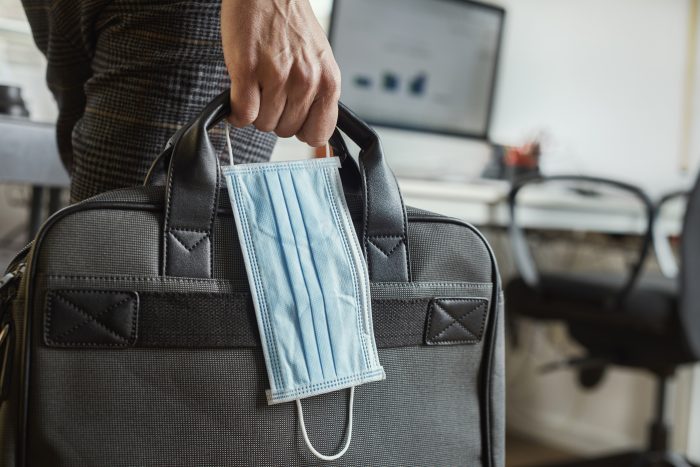The legal issues for golf clubs surrounding the resumption of golf
As the playing of golf has now returned throughout the UK, legal body the NGCAA looks at issues clubs should take into account at the moment, such as returning staff from furlough and buggy policies.
The return of golf on May 13 was met with jubilation for golfers around England. With Scotland, Wales and Northern Ireland returning soon after that, golf club managers were left with varying degrees of preparation time following the government and governing bodies’ announcements.
Whilst there had been some documentation provided in advance by the government and the golf’s governing bodies (‘the guidance’), that guidance related to the preparation of the course, limited clubhouse facilities and the playing of the game itself.
Beyond that, the return of golf has raised its own legal issues for club managers to contemplate.
Risk issues
First and foremost, clubs will have to follow the guidance. Examples include social distancing, the removal of rakes, leaving flag sticks in and closing off ball washers. A key element to the preparation of golf clubs is the conduct of risk assessments and ensuring that any risks are addressed with measures to reduce or eliminate the same. Golf clubs should satisfy themselves that they are complying with the guidance and their own measures arising from risk assessments.
New rules for staff and members
It is important to communicate any new measures for the restricted return of golf to both employees and to members. For staff and members, the communication may be framed as procedural documents, a new rule, byelaw or policy. In order to reduce potential liability, golf clubs are well advised to follow the guidance in producing their own internal documents and systems for matters such as distancing and sanitisation. These should be provided to all staff and members.

It is important that clubs communicate the fact that they are seeking to minimise potential risk by following the guidance. Further, it is vital the club stress that there is a joint approach here between clubs, employees and members – that all three have a responsibility, such as ensuring that that they comply with obligations on sanitisation.
Whilst it may seem potentially heavy-handed, it is sensible to include a statement that if an employee or a member is found in breach of any of the new guidelines, policies, rules that the club publishes, then they may face disciplinary action.
Clubs should conduct a review of their employment and member documentation to ensure the correct announcement of the new rules regarding matters such as social distancing, sanitisation and amended rules for the course. Some existing disciplinary procedures may be sufficiently wide in their drafted terms to allow new rules to be introduced, but others may need amendments so as to ensure that any breaches by either employees or members can be dealt with firmly and in accordance with those disciplinary procedures.
Staff
Many clubs will have staff on furlough at the moment, claiming wages through the coronavirus job retention scheme (CJRS). It is quite possible that the return to golf will require fairly minimal changes in terms of staffing numbers since the bar and restaurant facilities in the clubhouse remain closed, for now. Many managers and admin teams have continued to work, subject to social distancing, or they have been able to work from home. In terms of greenkeepers, that is likely continue as it is, albeit perhaps flexing up to full teams after reducing during the shutdown.
The CJRS is set to continue with no changes until July, with the scheme running through until October 2020.
Where a club requires furloughed staff to return, then that is perfectly permissible. If clubs have followed the template letter which we issued for placing employees on furlough leave, the return of staff is stated as being on one week’s notice, which was fairly standard for most employers across the country.
Safety concerns
Employees have long had protection from detriment and dismissal in health and safety matters. If they hold a genuine and reasonable belief that there are serious and imminent circumstances of danger, they can leave or refuse to return to their place of work (or dangerous part of it) if the danger is something which they cannot reasonably have been expected to avert. The protection enjoyed by employees extends to an employer being unable to subject the employee to a detriment, such as docking wages or disciplining them and, further, if they were to dismiss the employee then that would be an automatic unfair dismissal.

In respect of the coronavirus, golf clubs may be faced with employees who are at an increased risk of contracting coronavirus. Those employees who are required to shield because they have been notified that they are extremely medically vulnerable can be furloughed. Further, the condition which they have may well amount to a disability within the meaning of the Equality Act 2010 and that condition may make some susceptible to more severe symptoms from coronavirus. Here, the employer may have a legal duty to make reasonable adjustments to the employee’s working arrangements, such as agreeing to them working from home on full pay for a time, or accommodating any heightened feelings of stress that they may be experiencing by adjusting workload. It may extend to agreeing to continue them on furlough when otherwise they may not have done so.
There may be an employee who has not been deemed extremely medically vulnerable and who is seeking to self-isolate as a precautionary measure. This might be where they think that the workplace is not safe. As referred to above, employees do have protections in place if the employer were to take action against them for a refusal to work in the circumstances referred to above. This is why following the guidance and carrying out risk assessments is so crucial – in discussions with employees, it will help determine if they hold a genuine and reasonable belief about the potential danger.
ACAS recommends that an employer should listen to any concerns staff may have. An employer should carefully consider the personal circumstances of the employee in question and take their concerns on board. Indeed, a discussion around risk assessments, PPE and other adjustments to the workplace would form the backbone of any such discussion. Employers are, though, advised to take a flexible approach if an employee has genuine concerns about coming in to work. For example, it is possible that they share a house with someone who is medically vulnerable; there could be sympathy with that. Employers could consent to the employee taking periods of annual leave or unpaid leave. It may be a dangerous step to take if an employer considers disciplinary action against them in circumstances where they genuinely and reasonably believe there is imminent and serious danger.
Buggies
Unless the club’s risk assessment is able to identify otherwise, the use of personal single seater buggies is unlikely to carry any greater risk than a golfer’s personal bag and trolley. This note therefore considers the position in relation to club buggies.
In the absence of specific guidance from the government or governing bodies, we deal with the law as we normally do for buggies. That is to say that if there were to be a ban or restrictions placed on the use of buggies, a disabled person may be able to claim discrimination.

Image by Tristan Jones
In thinking about potentially banning or restricting buggies as a result of coronavirus, it is a similar thought process for the club to follow as they do when ground conditions are wet and dangerous. Essentially, it is a balancing act between health and safety and the rights that a disabled person has under the Equality Act 2010. In circumstances where coronavirus is a potential risk, that risk must be assessed and reasonable adjustments could be considered and potentially put in place arising out of that risk assessment. If the reasonable adjustments are sufficient to eliminate or reduce the potential discrimination at the same time as giving this additional low level of health risk, it would appear that it may not be justifiable to put a ban in place.
Things to consider for golf clubs would be the fact that there is the potential for the transfer of the virus on surfaces, such as a golf buggy. If a club banned buggies altogether, then a disabled person may be able to claim discrimination. Examples of potential adjustments, instead of a blanket ban, might be to ensure that the use of buggies is restricted to only those people who are able to provide a medical certificate as evidence of disability – that should assist in reducing the number of people who use the buggies. Further restrictions might include that buggies can only be used by one person at a time to assist with social distancing, as well as a requirement for disinfecting the buggy prior to and after usage. These suggestions are neither exhaustive nor to be relied upon as a solution to eliminating risk – each club must carry out its own risk assessment and make a decision based upon that.
For further advice in relation to legal matters affecting golf clubs please contact the NGCAA (the National Golf Clubs Advisory Association) on office@ngcaa.co.uk or 01886 812943.















hi, Is it a legal requirement to have a booking system in place at golf clubs?
In good times, it’s important to be in touch with your experts on compliance obligations !! In times of crisis, doubly important, risks are very high !!